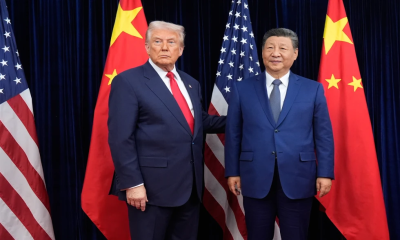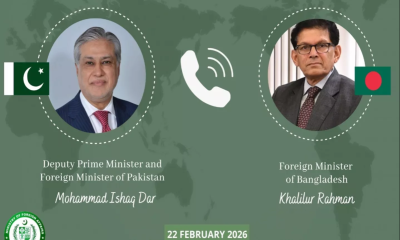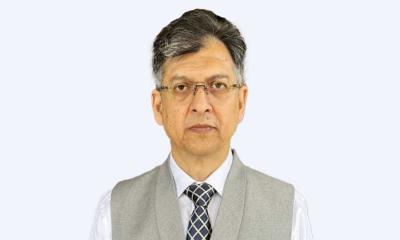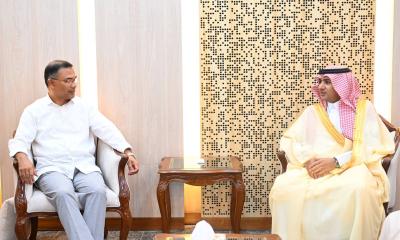China and Russia proclaimed a deep strategic partnership on Friday to balance what they portrayed as the malign global influence of the United States as China's President Xi Jinping hosted Russia's Vladimir Putin on the opening day of the Beijing Winter Olympics.
In a joint statement, the two countries affirmed that their new relationship was superior to any political or military alliance of the Cold War era.
"Friendship between the two States has no limits, there are no 'forbidden' areas of cooperation," they declared, announcing plans to collaborate in a host of areas including space, climate change, artificial intelligence and control of the Internet.
The agreement marked the most detailed and assertive statement of Russian and Chinese resolve to work together - and against the United States - to build a new international order based on their own interpretations of human rights and democracy.
Steeped in ideological discourse, it was not clear whether it would immediately translate into an increase in tangible and practical cooperation despite Putin trumpeting a new gas deal with China on Friday, or was intended as more of a statement of general policy intent.
Jonathan Eyal of the London-based RUSI think tank said the declaration marked a "frontal rebuttal" of the US and Western view of the world and a possible building block towards a military alliance between Russia and China.
"It's the most explicit articulation of the 'making the world safe for dictatorship' strategy," he said. "It is a historic point because they both feel cornered and they feel their moment has arrived to state their vision of the world and promote it aggressively."
The two countries have moved closer together as both have come under pressure from the West on a host of issues including their human rights records and Russia's military build-up near Ukraine. The timing of their announcement was highly symbolic, at a China-hosted Olympics that the United States has subjected to a diplomatic boycott.
Each went significantly further than before, Eyal said, in explicitly backing the other over key bones of contention with the United States and its allies:
Russia voiced its support for China's stance that Taiwan is an inalienable part of China, and opposition to any form of independence for the island. Moscow and Beijing also voiced their opposition to the AUKUS alliance between Australia, Britain and the United States, saying it increased the danger of an arms race in the region.
China joined Russia in calling for an end to NATO enlargement and supported its demand for security guarantees from the West - issues at the heart of Moscow's confrontation with the United States and its allies over Ukraine.
The two countries expressed concern about "the advancement of U.S. plans to develop global missile defence and deploy its elements in various regions of the world, combined with capacity building of high-precision non-nuclear weapons for disarming strikes and other strategic objectives".
Elsewhere, without naming Washington, they criticized attempts by "certain states" to establish global hegemony, fan confrontation and impose their own standards of democracy.
In the technology arena, Russia and China said they were ready to strengthen cooperation on artificial intelligence and information security.
They said they believed that "any attempts to limit their sovereign right to regulate national segments of the Internet and ensure their security are unacceptable".







-20260220065859.jpeg)
-20260219110716.webp)
-20260219054530.webp)









-20260222063838.webp)

















